This week, a cohort from Jacaranda convened in Cape Town for the International Maternal and Newborn Health Conference (IMNHC). It was a privilege to exchange ideas and approaches with other innovators in the space – from ways to more inclusively collect feedback from mothers, to how real-time data can measurably address gaps in referral systems and networks of care. Here’s our snapshot of proceedings:
May 8th
Improving Maternal and Newborn Health Outcomes through Service Delivery Redesign (SDR)
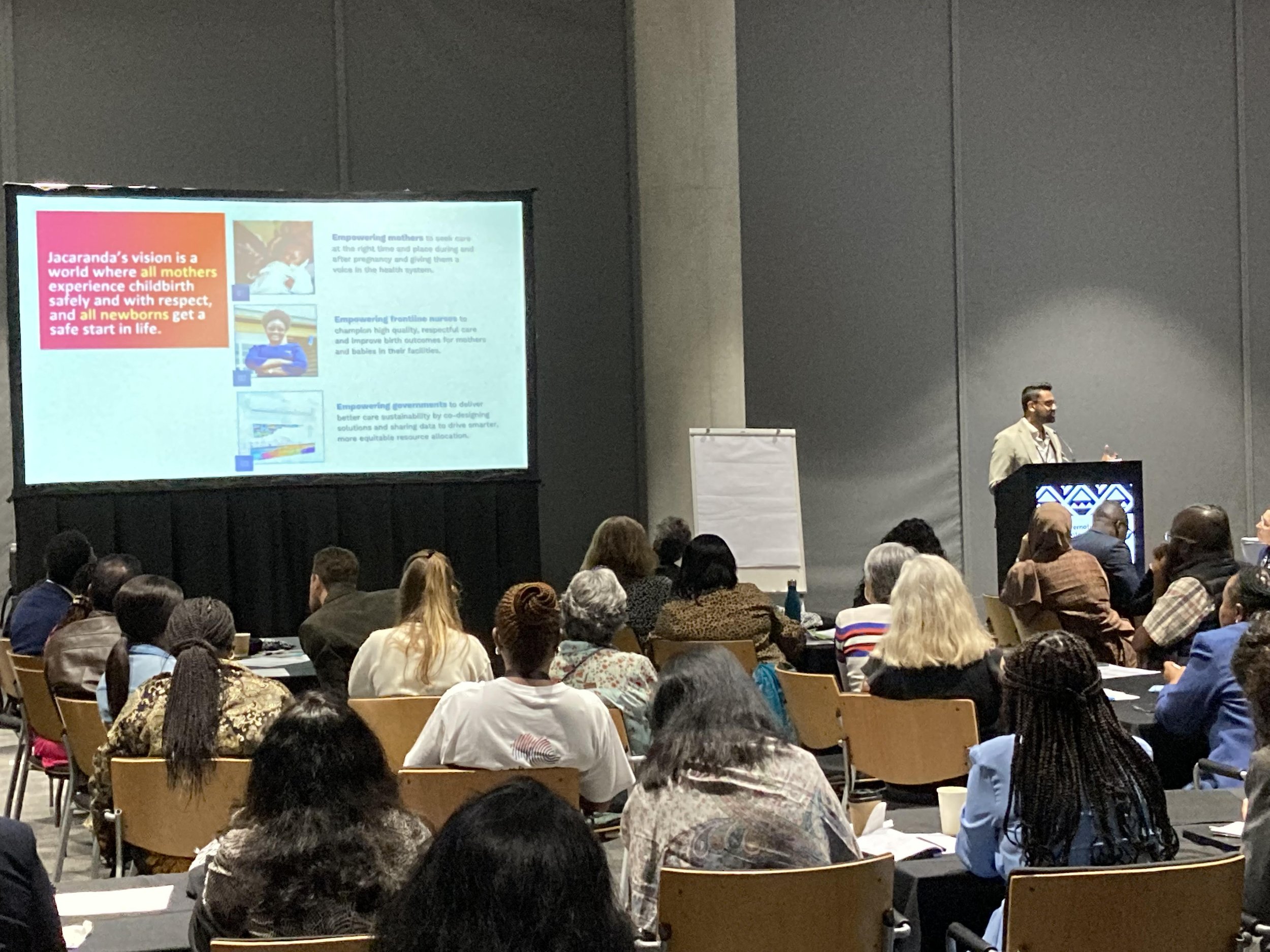
Co-Executive Director Sathy Rajasekharan joined panelists from Rescue.co, the Western Cape Department of Health, and Thamini Uhai MoH to explore opportunities and challenges for implementing SDR in different country contexts – Kenya, South Africa and Tanzania. Three clear threads emerged from discussions; that common problems exist in complex health systems, that SDR is a continuous process, and that there are no silver bullets when it comes to systems change. Our takeaways.
May 9th
Improving Referral, Transportation & Triage
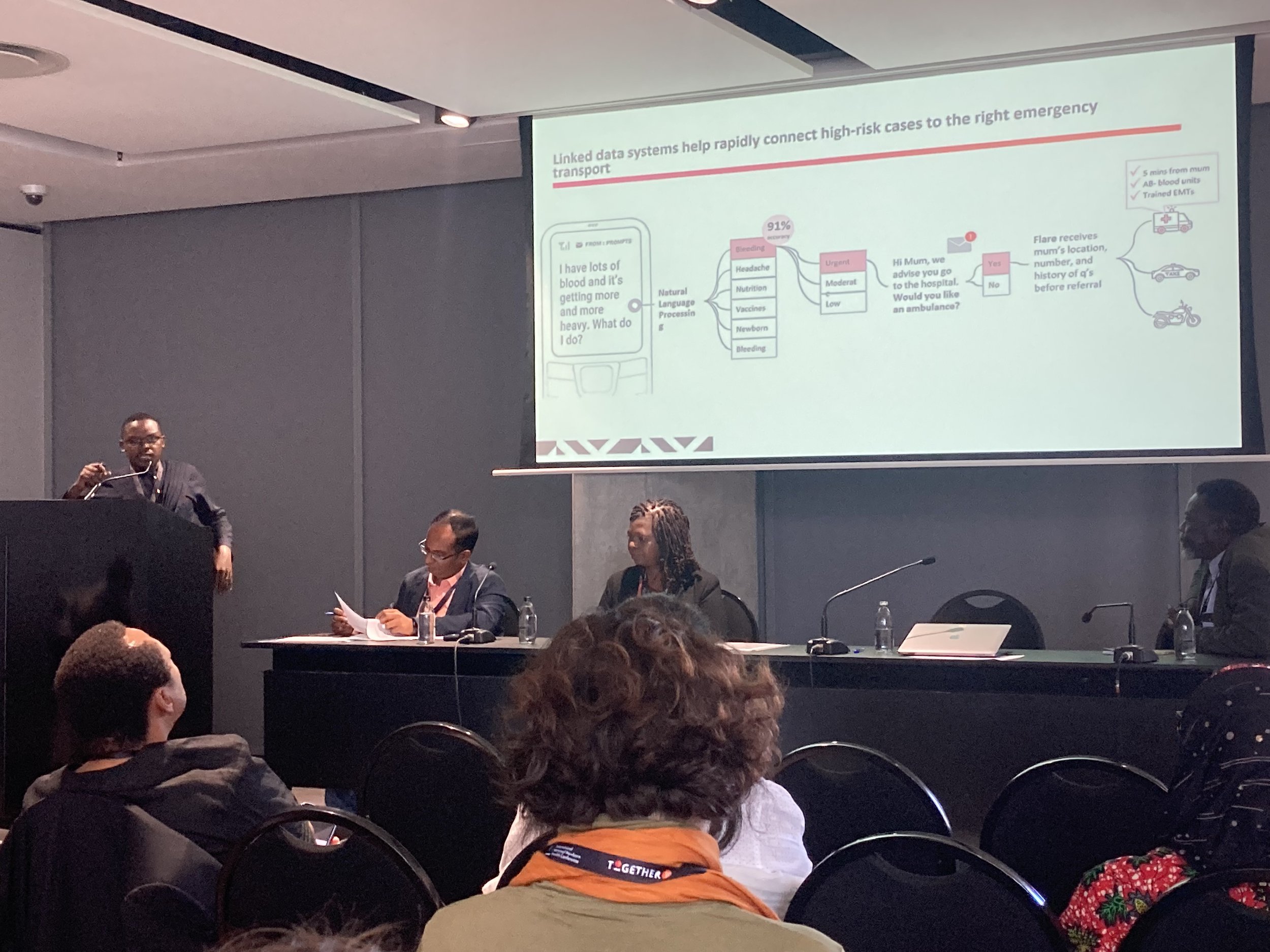
Day 2 of IMNHC saw Programs Lead Javan Waita take to the stage to share the potential of real-time data to plug gaps across a mother’s referral journey. Using insights from an county-led project in Kakamega, Javan highlighted the value of private sector solutions like Jacaranda’s digital health service PROMPTS and Flare to address challenges, like delays in care seeking and emergency transport, in the public sector, and how referral data could help proactively screen high-risk mothers and target training for frontline nurses.
May 10th
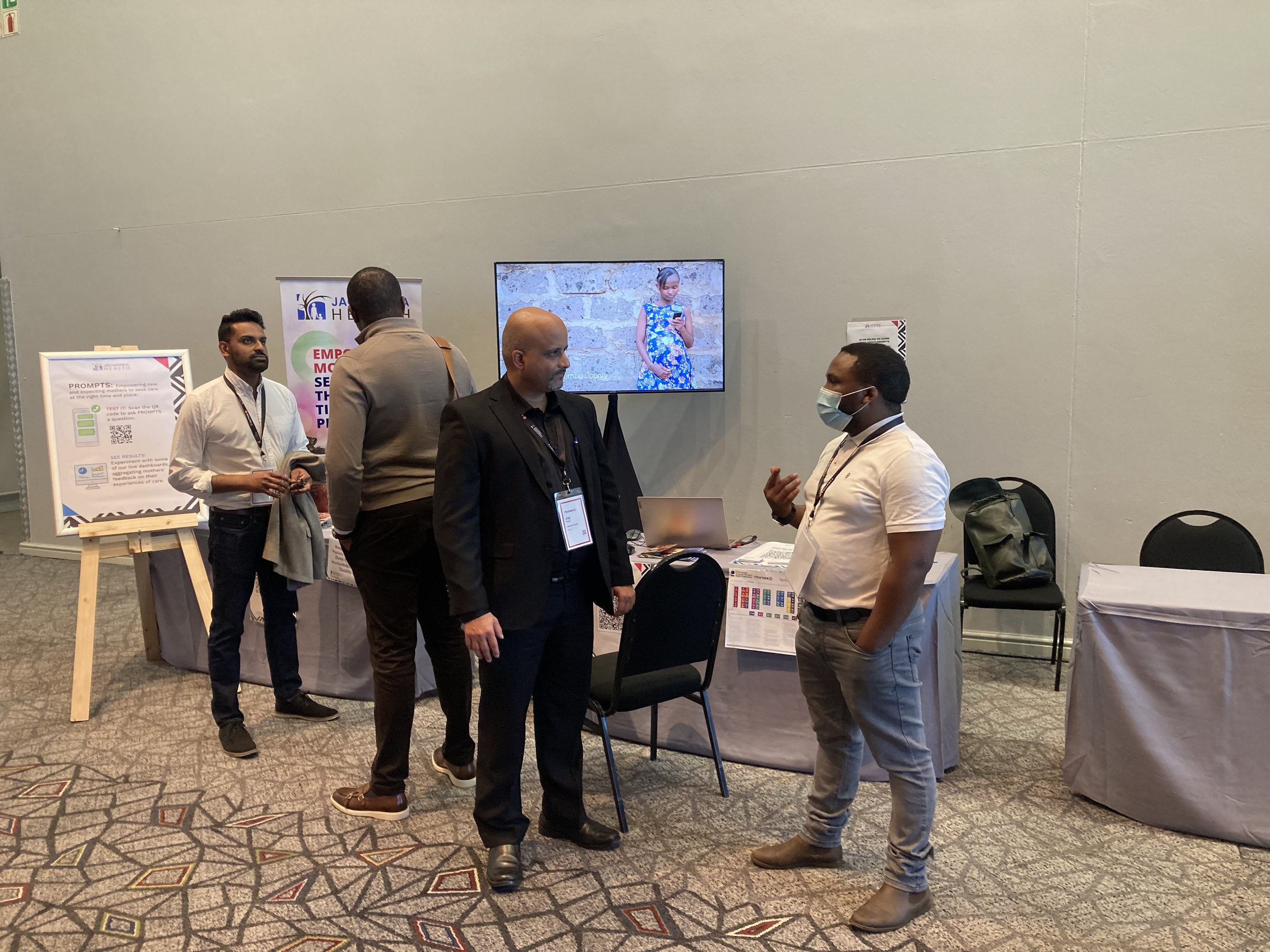
Jacaranda’s Head of Technology Jay Patel and Head of Global Communications Laura Wotton took IMNCH audiences ‘behind the scenes’ of PROMPTS, explaining how the platform uses AI on the back-end to identify, triage and refer high-risk mothers and refer them to care. Audiences were encouraged to interact with the tool from their phone by asking questions, as well as explore our newest dashboards that triangulate data from mothers, facilities, and counties to inform quality maternity care.
May 11th
Imagine a World Where Mothers & Newborns…
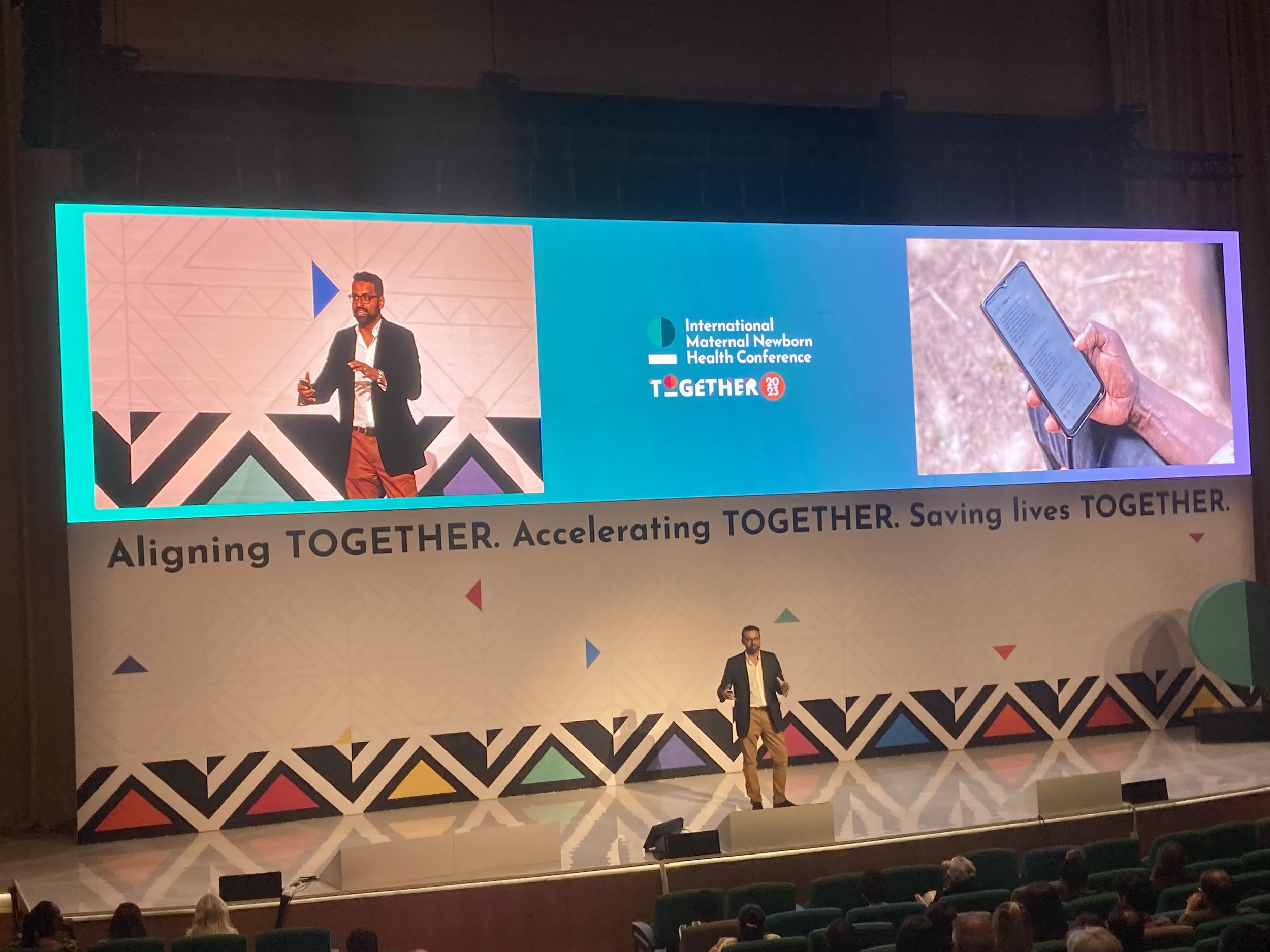
Co-Executive Director Sathy took part in one of the conference’s final plenaries, featuring a series of TED Talks exploring new horizons and approaches to delivering care. Over five minutes, he put forward his vision and that of Jacaranda’s: a world where millions of mothers’ journeys could continuously improve the services they receive. Excitingly, this is already happening, he explained. ‘We already routinely collect data from 2 million+ mothers on PROMPTS and this data is being used by facilities and governments to make decisions about where […] to allocate resources.’ Watch the full recording here.
Innovations for Hearing Women’s Voices to Improve Maternal and Newborn Health
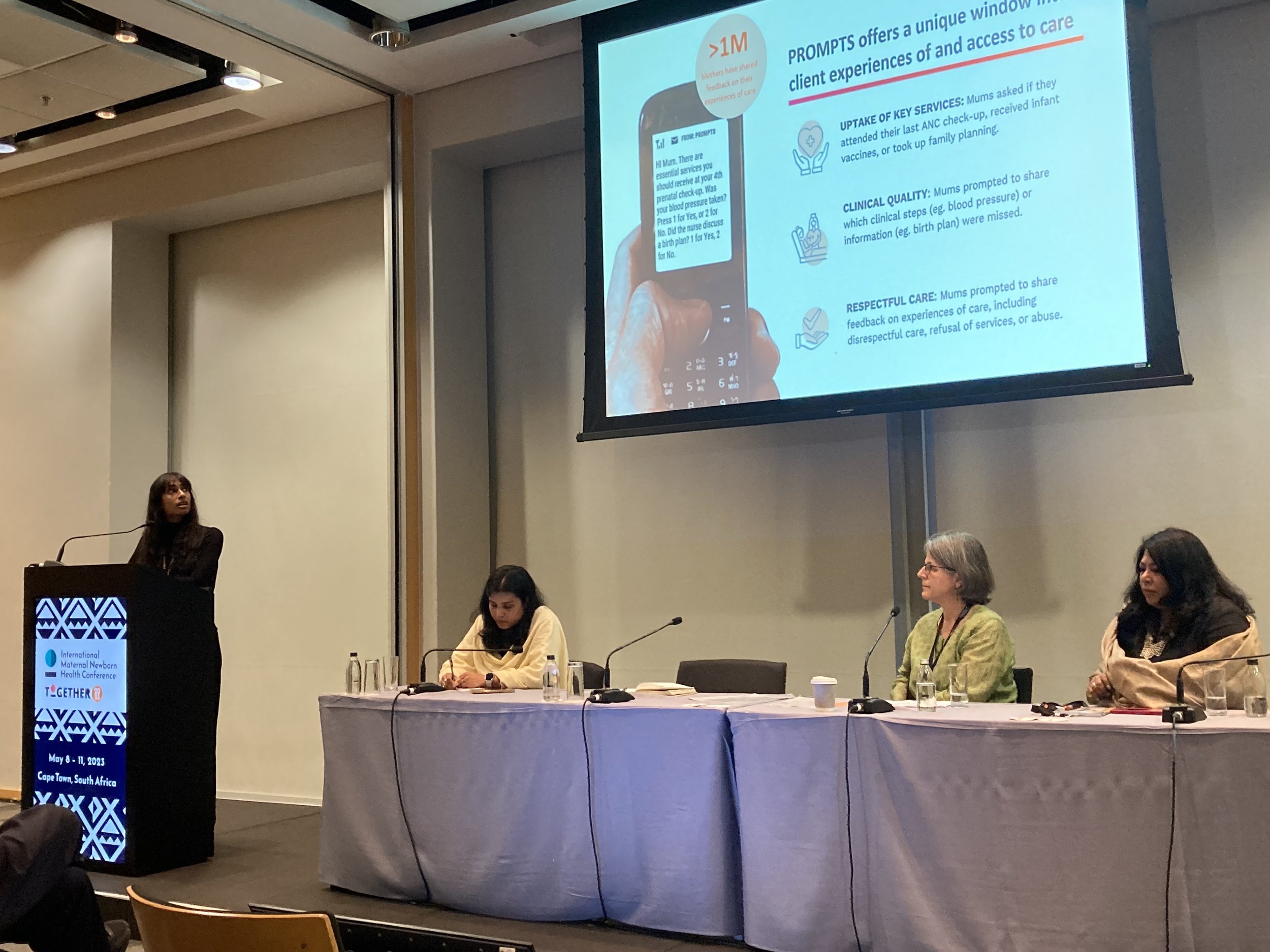
Director of Research, Design & Evaluation Anneka Wickramanayake and presenters from India and the US shared strategies and tools for amplifying women’s voices in the health system. Several cross-cutting themes emerged: that digital tools can provide a granular, yet scalable window into client experiences of and access to care, that real-time data helps capture the realities of a mother’s evolving needs and experiences, and that ‘feedback loops’ are needed to link women’s voices to actual health system improvements. In the words of Aparajita Gogoi, ‘Women are tired of being asked for feedback without evidence of solutions’.
–
We enjoyed connecting and reconnecting with the maternal and newborn health community throughout the four conference days. To continue the conversation, we welcome your ideas, responses, and questions to [email protected].
